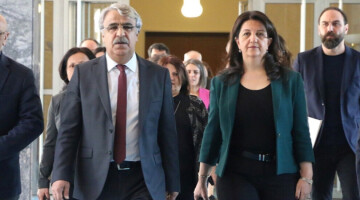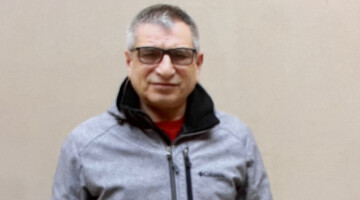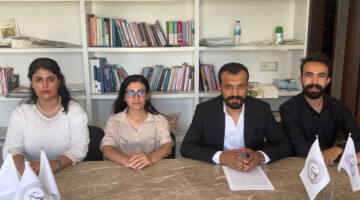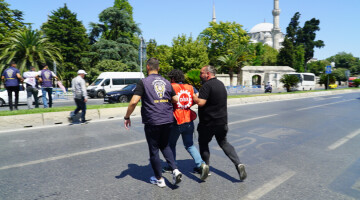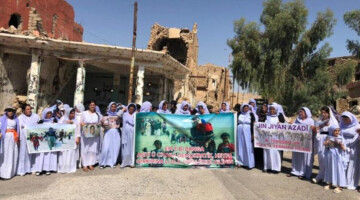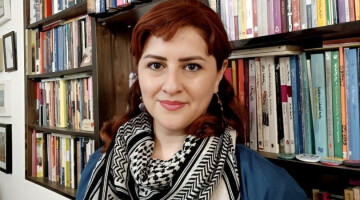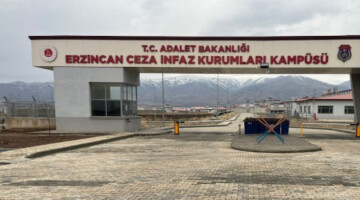For 40 months, no news has been received from Abdullah Öcalan, the Kurdish People's Leader, who has been held under heavy isolation conditions in İmralı Island Prison for more than 25 years. While Abdullah Öcalan’s right to meet with his lawyers and family members has been usurped as a whole, the authorised institutions, especially the European Committee for the Prevention of Torture (CPT), which has the sole authority to enter İmralı, insist on remaining silent in the face of the unlawfulness.
On the other hand, within the framework of the ‘Freedom for Abdullah Öcalan, a Political Solution to the Kurdish Question’ campaign, which was launched globally on 10 October 2023, lawyers from different social segments continue to express their reactions towards this unlawfulness.
François Devedjian, one of the lawyers from the Paris Bar Association who recently sent a letter of protest to the Ministry of Justice condemning the prevention of the right to defence of Kurdish People's Leader Abdullah Öcalan and other prisoners in İmralı, spoke to ANF about the İmralı isolation.
‘Öcalan is an important figure representing the Kurdish people’
François Devedjian said that the Imrali isolation is a clear violation of human rights and is part of the Turkish state's policy of denial. "First of all, the isolation of Abdullah Öcalan is a practice of Turkey, a state which does not respect basic human rights and shows even less respect for the Kurdish people and their representatives, especially Abdullah Öcalan, who is an important figure representing the Kurdish people. The Turkish state, whether Erdoğan or his predecessors, displays an attitude that violates human rights against Öcalan in particular and the Kurdish people in general. Therefore, with the decision we have taken as lawyers of the Paris Bar Association, we condemned this unlawful unlawfulness and demanded an end to it.”
‘İmralı isolation is part of the Turkish state's policy of denial’
Emphasising that the İmralı isolation is part of the Turkish state's policy of denial, lawyer François Devedjian said: “It is really hard to understand why Abdullah Öcalan's lawyers are prevented from going to İmralı. We don't even know if Öcalan is still alive. There is no actual communication. He could be ill. This is the first point and the most dramatic one. We do not know the state of health of Abdullah Öcalan, neither physically nor mentally.
Secondly, it is important for a prisoner, whoever he or she may be, to meet his or her lawyers, especially for a symbolic prisoner like Abdullah Öcalan. It is also a way for him to get his message across. This ban means that the Turkish state absolutely refuses to recognise Abdullah Öcalan as an interlocutor.
I think the message Turkey wants to send is that Abdullah Öcalan does not exist, just like the Armenian question does not exist for them. This is a culture of denial, a denial of persons, peoples and the individual.”
The French lawyer also criticised the Council of Europe and its organisation CPT's stance on İmralı and said: ‘The CPT has not yet released its latest İmralı report because Turkey has not responded. The CPT has recently taken an exceptional decision towards Azerbaijan and made a public statement about this country. It could do the same for Turkey. I think this would be a completely justified and appropriate decision. In fact, given the flagrant, repeated and institutionalised human rights violations in Turkey, I think that more realistic sanctions would be more justified. You cannot demand to join or even associate with the European Union as a state that regularly violates human rights.”
‘Abdullah Öcalan is the Nelson Mandela of the Kurds’
Commenting on the ‘Freedom for Abdullah Öcalan, a Political Solution to the Kurdish Question’ campaign that was launched globally on 10 October 2023, lawyer François Devedjian said: “I think the campaign for freedom for Öcalan is a very important initiative. Abdullah Öcalan is the Nelson Mandela of the Kurds. If everyone wants peace and, in any case, an improvement in the situation of the Kurdish people and their relations with all their neighbours, Abdullah Öcalan is in a position to achieve this. The conditions in which he is imprisoned by Turkey are real proof that Turkey does not want to peacefully agree or move forward in recognising the inherent rights of the Kurds. We must therefore fight for Öcalan's release. And in any case, it must start with the possibility for his lawyers to see Abdullah Öcalan and for Öcalan to express himself. This is a necessity for the Kurds, of course, but I think it is also important for the Turks and for humanity to put this question on the agenda and for everyone to realise what is at stake."









